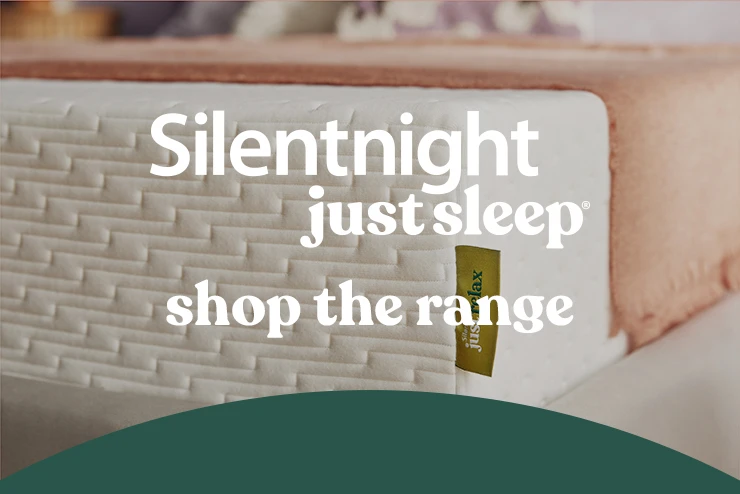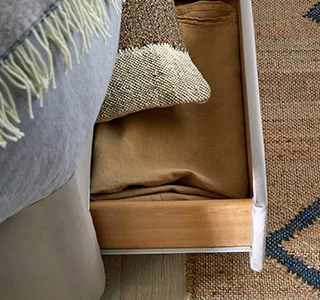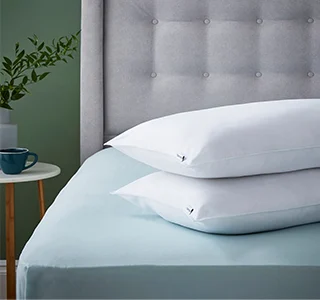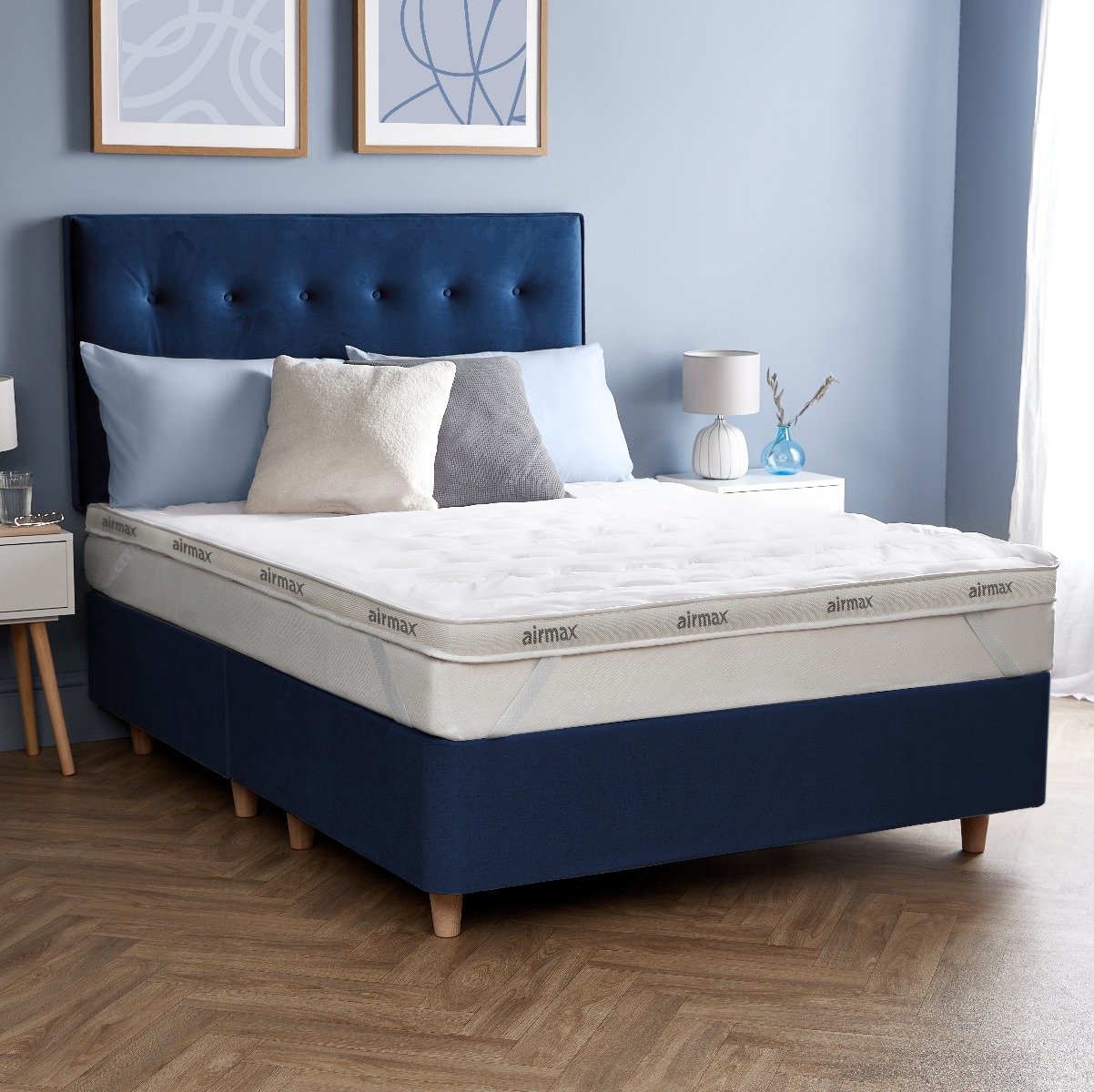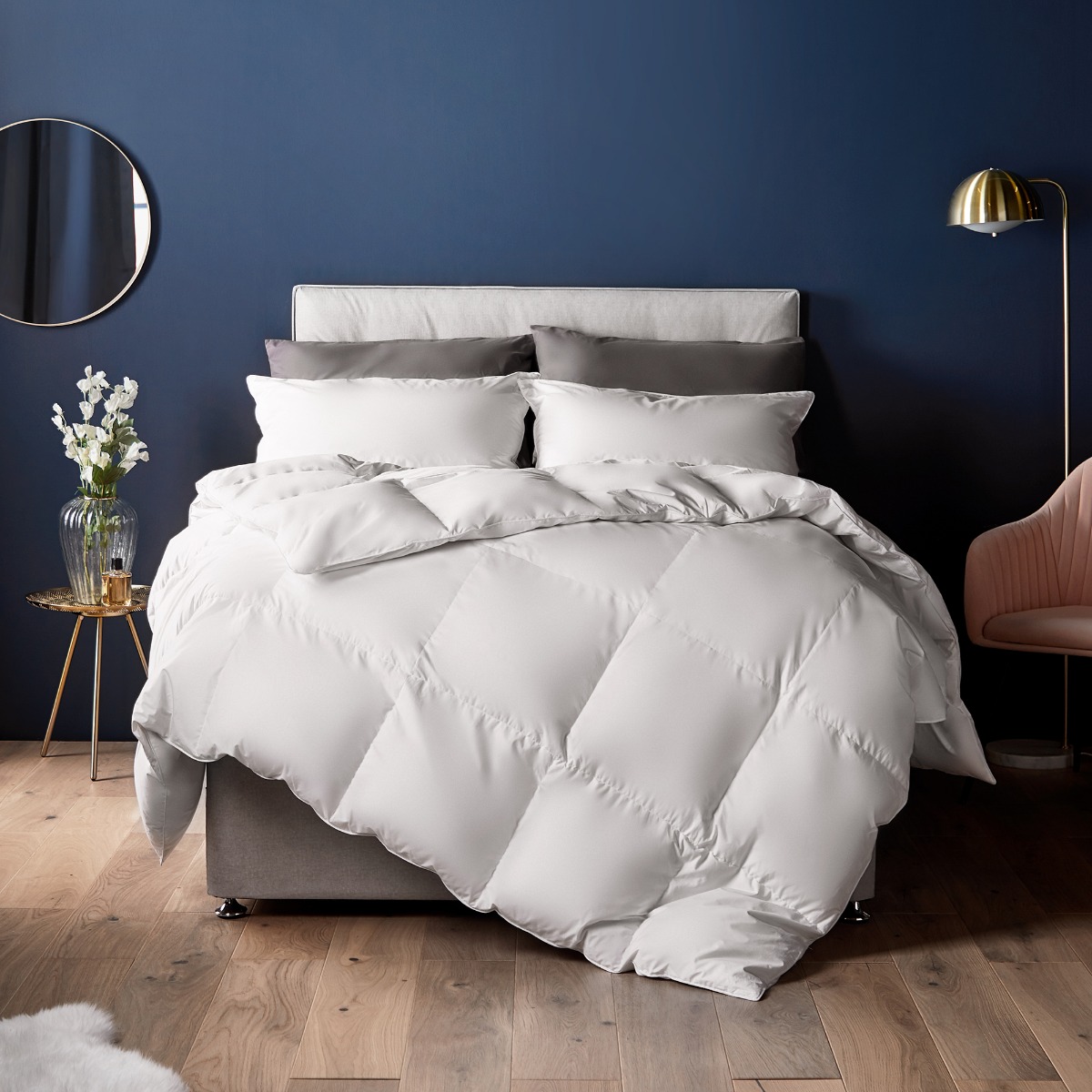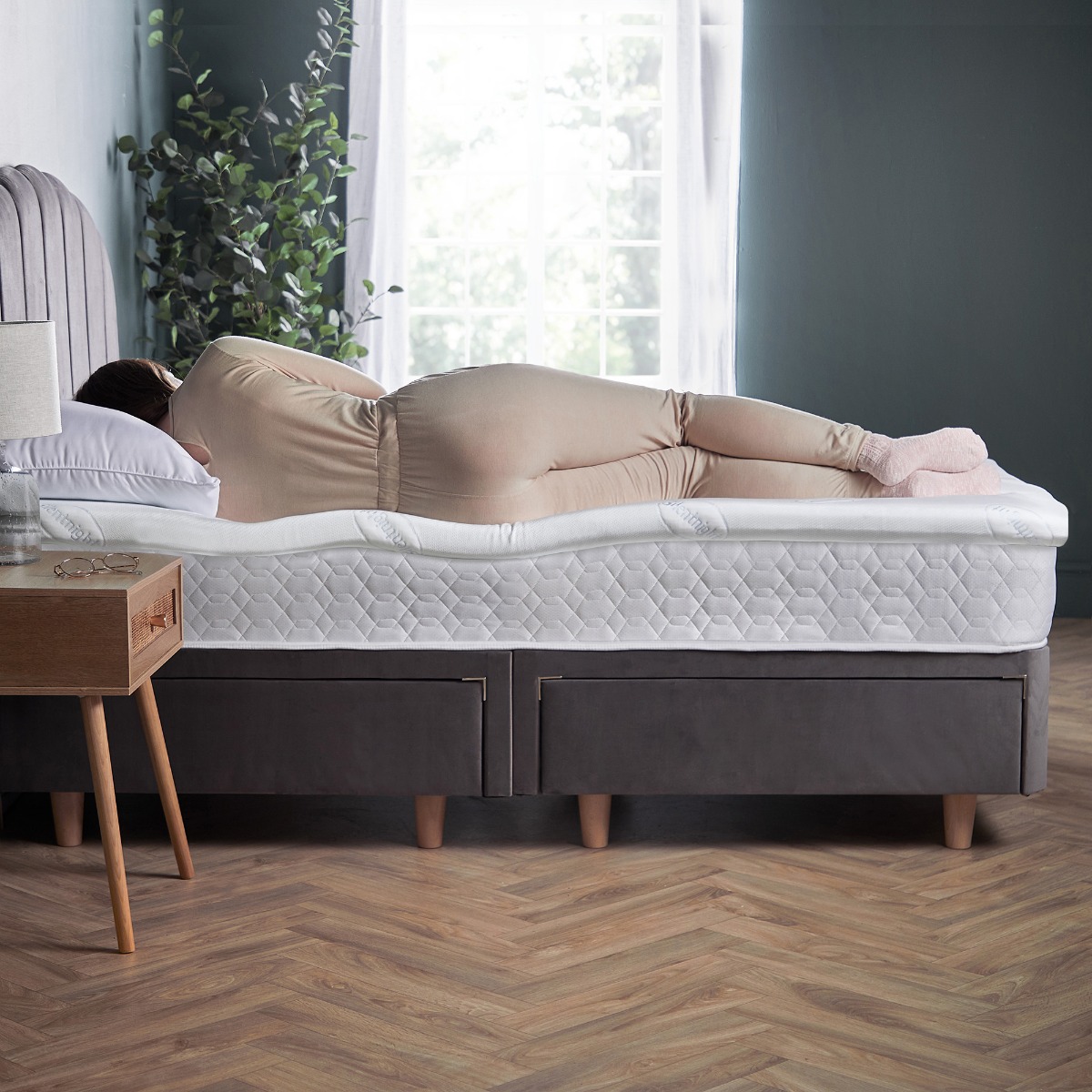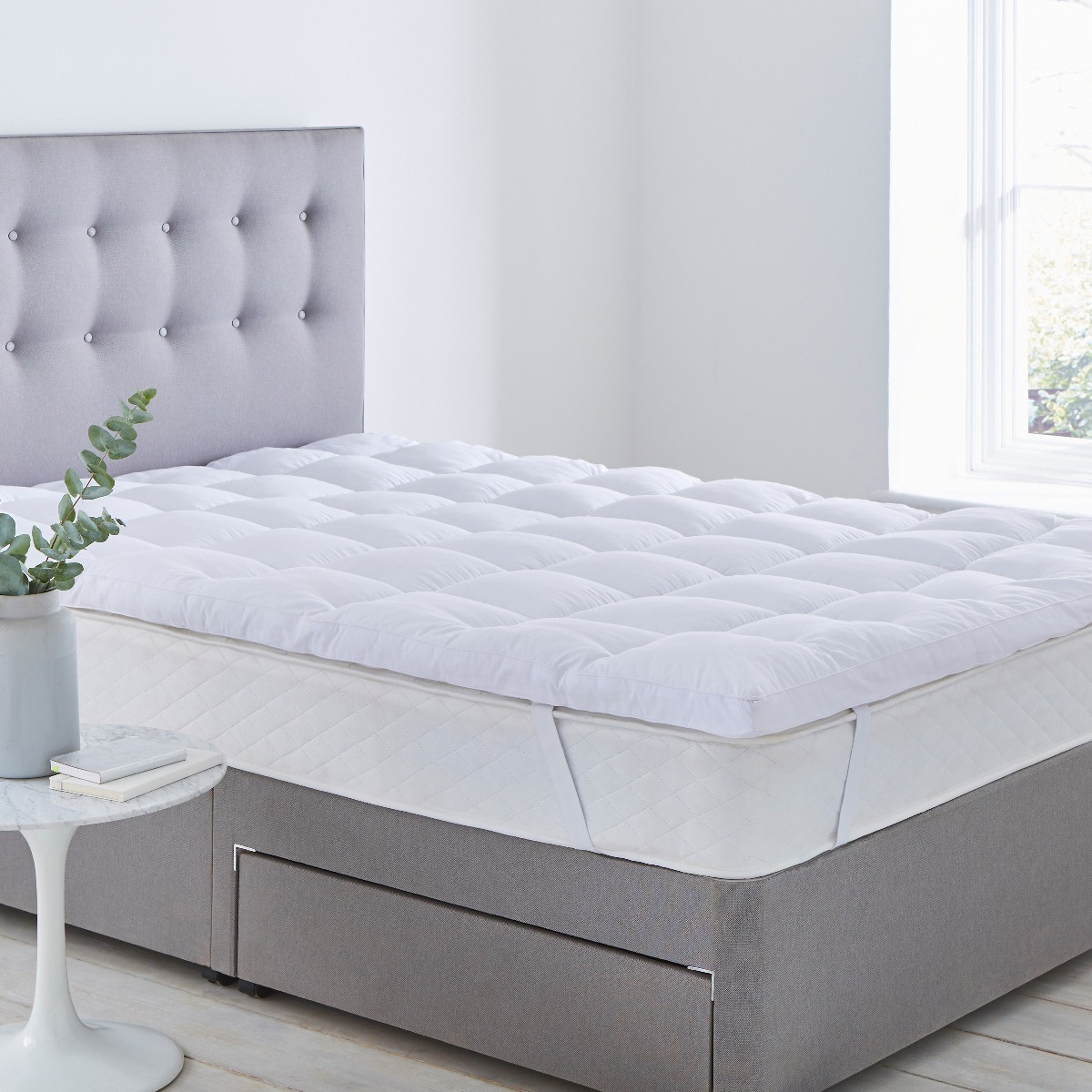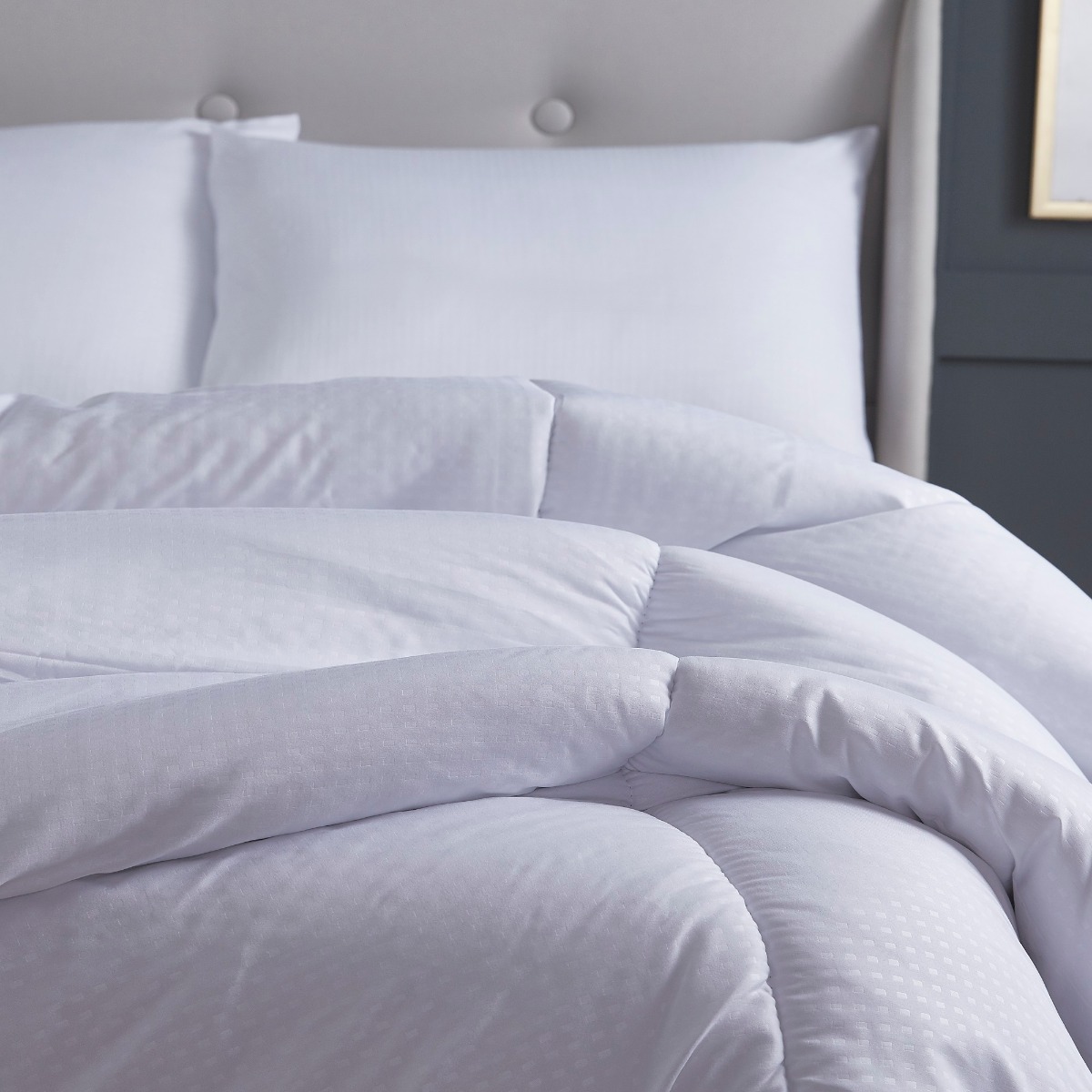the best sleep sounds for a blissful night’s sleep
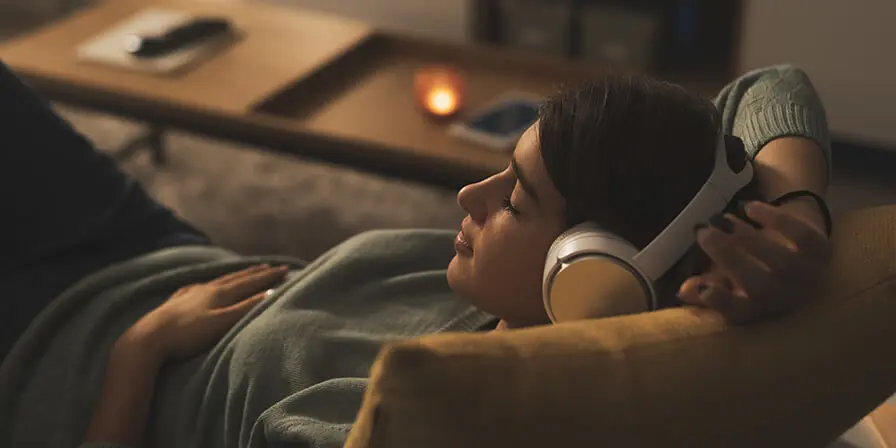
Whether you live in a noisy environment or feel stressed and/or anxious, there’s a variety of reasons why you may sometimes struggle to sleep. If you’re looking for a way to get a good night’s sleep but you’re not quite sure where to start, trying sleep sounds is an inexpensive way to try and improve your sleep. Sounds such as white noise and ocean waves enhance a sense of calm and relaxation, helping you to drift off into a peaceful slumber.
Our response to sound is truly unique and individual and can stimulate negative and positive emotions. When trying out different sounds for the first time to help you sleep, pay close attention to what relaxes you. You may find you have a better reaction to gentle, rhythmic sleep sounds or you might prefer something melodic. There are many free sleep sounds available that you can try so you can figure out what works best for you.
So what kind of sounds help you sleep? We’ve created a handy guide on some of the most relaxing sounds for sleep, read on to discover them and thank us later.
sounds to help you sleep
white noise sleep sounds
White noise is effective at masking other noises that can lead to disrupted sleep and is a mixture of all sound frequencies at once, at the same level of intensity.
Just like a whirring fan, white noise provides a stream of sound that is steady and even. This even distribution of noise is thought to help reduce the brain’s reactivity to spikes in volume, so environmental noises such as the slamming of doors and car horns are less likely to disrupt your sleep. You can get white noise through an app or you can buy a dedicated white noise machine, which may offer better sound quality.
pink noise sleep sounds
Most people are familiar with white noise, but emerging research shows that pink noise may also be beneficial for sleep. So what is pink noise? Pink noise contains a range of all audible frequencies, with more power in the lower frequencies, and is often considered more relaxing than white noise, as it’s not as high pitched. This type of sound closely mimics noises found in nature, such as rain, wind, waterfalls and ocean waves.
ocean wave sleep sounds
Using sea sounds for sleep is a popular choice amongst people, the rhythmic crashing of water onto the sand or rocks can provide a calming and soothing feel. The sound of ocean waves creates a sense of relaxation, happiness and gentle focus, making it deeply relaxing. It’s not just the sound of the ocean waves that are good for relaxation and sleep, other water noises can have the same effect.
rain sounds for sleeping
Using rain sounds for sleeping can greatly improve your night's sleep. The soothing sound of rain helps to create a peaceful and calm environment, promoting relaxation and reducing stress. It can also drown out disturbing noises and provide a consistent background noise that helps to lull you into a deep and restful sleep.
nature sleep sounds
Nature sounds, such as the noise of a forest or the wilderness, can help you to wind down before bed. Listening to nature sounds also reduces awakenings during the night and improves sleep quality too. Research carried out by scientists at the University of Sussex has shown that nature sounds lead to an increase in outward-focused attention, rather than inward-focused. Attention that is inward-focused is linked to stress, anxiety and depression, all of which can have a negative impact on sleep.
relaxing music as sleep sounds
Lower blood pressure, a slower heart rate and reduced anxiety are all benefits of listening to relaxing music, which in turn leads to a better night’s sleep. Music can decrease the time it takes to fall asleep and improve sleep quality. But how exactly does music affect sleep? Sleeping to music helps to reduce levels of the stress hormone, cortisol, and so you feel more relaxed and at ease. It also triggers the release of dopamine, boosting good feelings at bedtime and lowering pain levels too. Try to keep your music on the calm side as you sleep, as dopamine is a wake-promoting neurotransmitter, and too much can keep you awake.
When choosing music for sleep, consider the tempo. Studies have shown that music with a slow rhythm, between 60-80 beats per minute, is ideal as the normal resting heart rate is within this range and so the body may sync up with slower, more soothing sounds.
meditation soundtracks
Meditation and mindfulness promote a relaxed state of mind, which is beneficial when it comes to falling asleep. There are various meditation soundtrack apps and playlists that are specifically created to help you sleep. These meditation apps can include narrative storylines, breathing programs and soundscapes, all designed to help with sleep.
wind sounds for sleeping
Using wind sounds for sleeping can greatly improve your night's sleep. The gentle, rhythmic sound of wind can help create a soothing and relaxing environment, promoting relaxation and easing stress. It can also drown out external noises, making it easier to fall asleep and stay asleep throughout the night.
choosing the best sleep environment
In addition to making use of sleep sounds, you should also make sure to create the best sleep environment to ensure a perfect night’s rest. Some ways to improve your bedroom space include:






